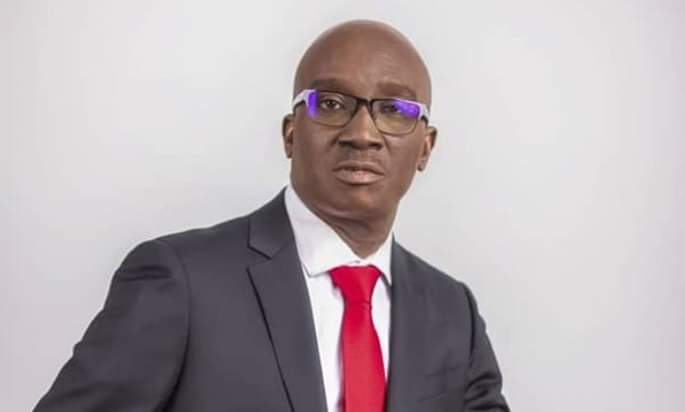
The Supreme Court, on Thursday, affirmed the election of Governor Monday Okpebholo of Edo State.
In a unanimous decision by a five-member panel led by Justice Mohammed Garba, the apex court dismissed as lacking in merit, an appeal the candidate of the Peoples Democratic Party, PDP, Asuerinme Ighodalo, filed to nullify the outcome of the governorship election held in the state on September 21, 2024.
According to the Supreme Court, it found no reason to set aside the concurrent judgments of both the Court of Appeal and the Edo State Governorship Election Petition Tribunal, which returned Okpebholo of the All Progressives Congress, APC, as the valid winner of the gubernatorial contest.
It held that the Appellant failed to adduce credible and admissible evidence to substantiate his claim that the election was marred by irregularities that included over-voting and substantial non-compliance with provisions of the Electoral Act.
Likewise, it held that the Appellant failed to call relevant witnesses to demonstrate some of the evidence he tendered in support of his case, especially the Bimodal Voter Accreditation System, BVAS, machines.
It held that some of the proof of evidence, which were tendered from the Bar, were merely dumped on the tribunal without establishing alleged non-compliance in 432 out of a total of 4,519 polling units in the state.
“The Appellant did not satisfactorily discharge the burden of proof placed on him by the law,” the Supreme Court held in its lead judgement that was delivered by Justice Garba.
Ighodalo had in the appeal marked: SC/CV/536/2025, prayed the court to invalidate the May 29 verdict of the Court of Appeal, which dismissed his case and affirmed Okpebholo’s victory.
The PDP candidate maintained that the appellate court failed to properly evaluate the case he brought to challenge the outcome of the poll, which he insisted was not conducted with substantial compliance to provisions of the Electoral Act.
The Supreme Court had on July 2, reserved its judgement after all the parties adopted their final briefs of argument.
While the Appellant the PDP urged the court to upturn the subsisting judgments and declare that he secured the highest number of valid votes and therefore ought to be declared the winner of the election, on the other hand, the Independent National Electoral Commission, INEC; governor Okpebholo and the APC, persuaded the court to dismiss the appeal and uphold the result of the election.
A three-member panel of the Appeal Court led by Justice M. A. Danjuma, had declined to nullify Governor Okpebholo’s election.
The appellate court upheld the May 15 judgement of the tribunal which validated the result of the election announced by the INEC.
The Justice Wilfred Kpochi-led three-member panel tribunal had dismissed petitions that were lodged against governor Okpebholo by the PDP and its candidate; the Action Alliance, AA, and its National Chairman, Adekunle Rufai Omoaje; as well as a case that was brought before it by the Accord Party, AP, and its own candidate, Dr. Bright Enabulele.
It will be recalled that INEC had declared that Okpebholo of the APC secured a total of 291, 667 votes to defeat his closet rivalry, Ighodalo of the PDP, who got a total of 247, 655 votes.
Dissatisfied with the result, the petitioners approached the tribunal, alleging that the election was not conducted in substantial compliance with provisions of the Electoral Act, 2022.
In the petition marked: EPT/ED/GOV/02/2024, PDP and its candidate alleged that governor Okpebholo did not secure the highest number of lawful votes that were cast at the election.
It was equally the contention of the petitioners that INEC failed to serialise and pre-record some of the sensitive materials that were deployed for the poll, a situation they said aided the rigging of the election in favour of the APC and its candidate.
Specifically, PDP and its candidate alleged that there was wrong computation of results in 765 polling units in the state, even as they produced 19 witnesses that testified and tendered exhibits before the tribunal.
Among the exhibits the petitioners tendered before the tribunal, included a total of 153 Bimodal Voter Accreditation System, BVA, machines that were used in 133 polling units.
According to the petitioners, results from the polling units were manipulated at the collation centres, a situation they said resulted in over-voting, in Okpebholo’s favour.
In its judgement, the tribunal held that the petitioners failed to by way of credible evidence, establish why the outcome of the election should be set-aside.
It held that the onus of proving that Governor Okpebholo was unduly returned by INEC, rested squarely on the petitioners, a legal burden it said was not successfully discharged.
The tribunal stressed that the PDP and its candidate merely dumped exhibits before it without demonstrating them through competent witnesses as required by the law.
It held that most of the witnesses who testified for the petitioners gave hearsay evidence, stressing that failure to produce polling unit agents, presiding officers or voters who participated in the election, to testify, proved fatal to the case of the petitioners.
The tribunal held that section 137 of the Electoral Act did not preclude the petitioners from producing necessary and competent witnesses to testify in support of their case.
It further dismissed the contention of the petitioners that contrary to the provision of section 73(2) of the Electoral Act, INEC failed to pre-record most of the materials that were deployed for the election.
More so, the tribunal held that none of the BVAS machines tendered before it were switched on to demonstrate that the number of votes recorded in the disputed polling units, exceeded the total number of accredited voters.
Following the affirmation of the judgement by the appellate court, Ighodalo took the case before the Supreme Court where he also lost on Thursday.